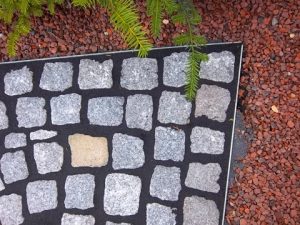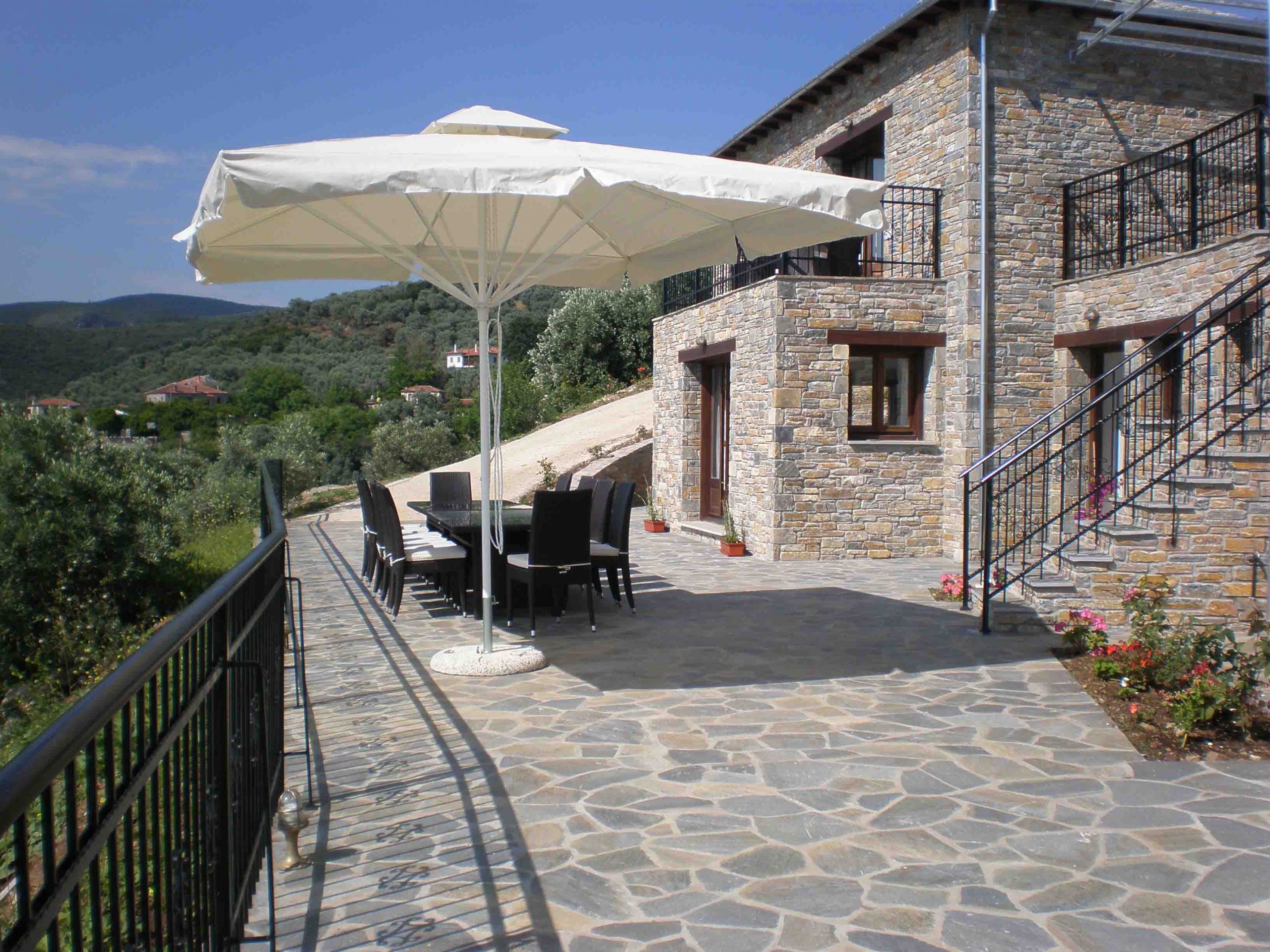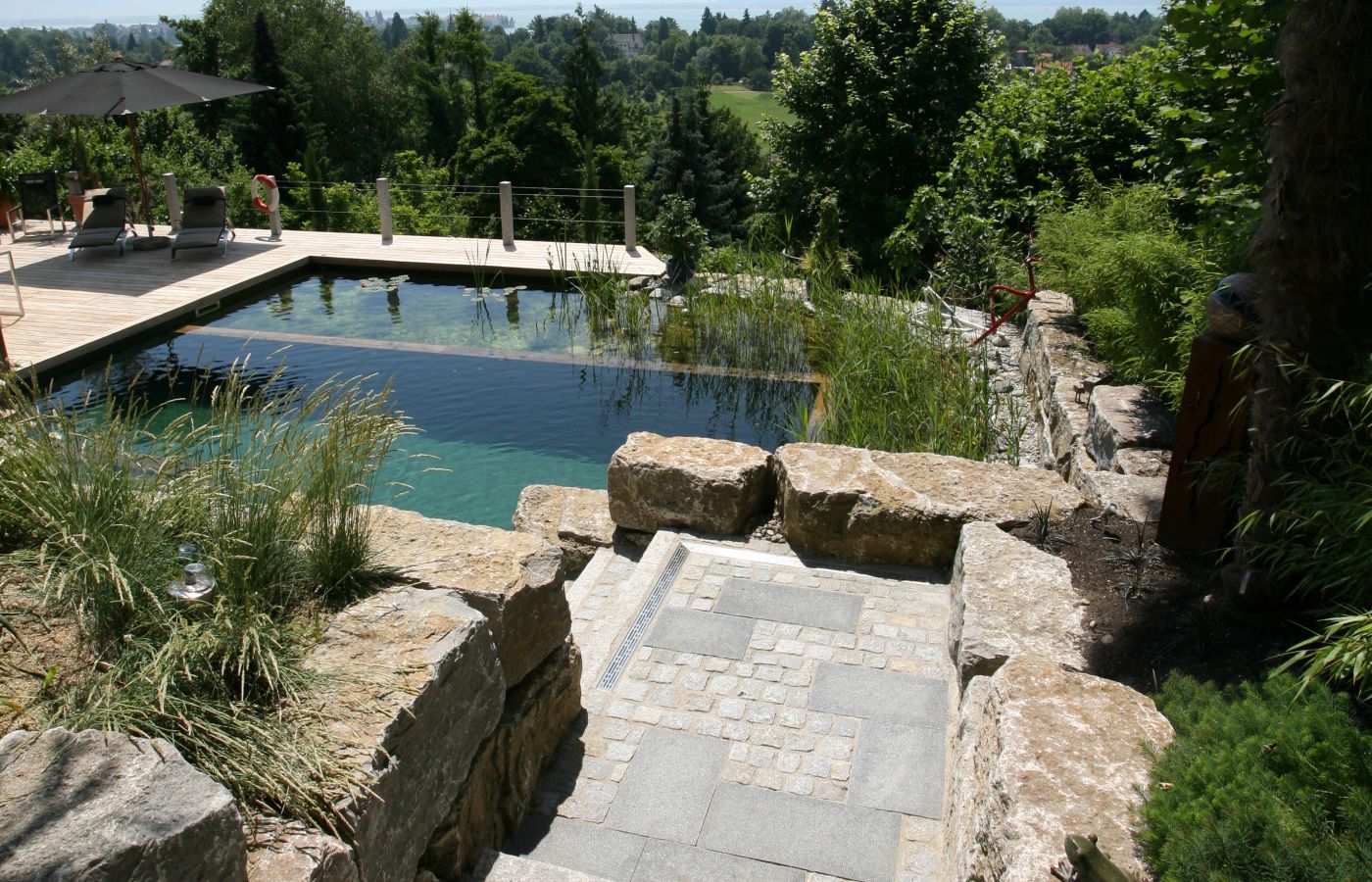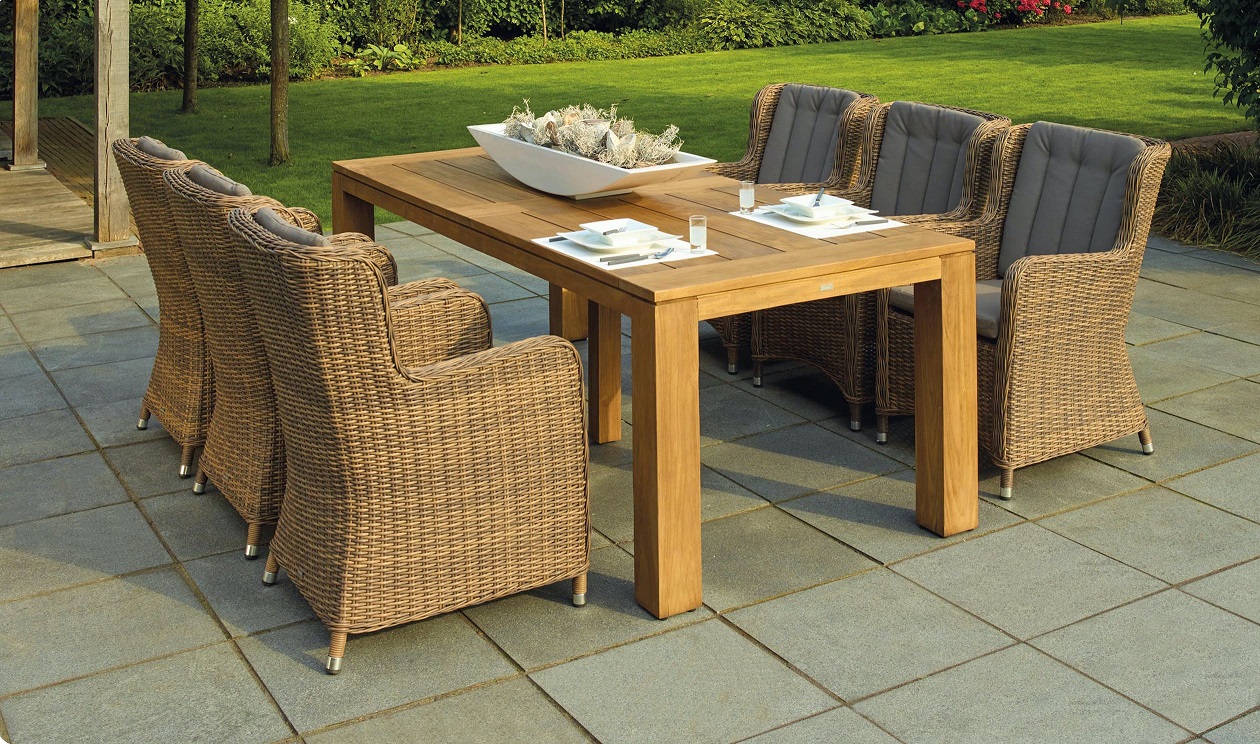Pavement jointing mortar for weed-free joints
If there is one thing we are all always short of, it is time. The day is filled with professional and family duties and tasks and there is little time left for household and green space. Who wants to spend these few free hours picking weeds and cleaning the pavement joints? It is all the more annoying when you have cleaned the joints between the cobblestones extra and notice that soon the next green peaks will make their way to the sunlight. The green plants are not necessarily harmful, you could of course let the weeds grow and be satisfied with the sight. But if you attach great importance to a well-kept terrace, well-maintained paths, driveways and artistically laid paved floors, you should take long-term action against weeds growing in the paved joints. There are products on the market with which this can be achieved. For example, you can use a weed-inhibiting pavement joint mortar for the pointing.
Weeds between the cobblestones – the removal is laborious
If you want to feel really comfortable in your own garden or on your terrace, the outside area should be clean and look well kept. Anyone who has a green space, who is involved with beautiful plants, the cultivation of vegetables and herbs will certainly appreciate the fact that every year in spring everything turns green and starts to sprout. Unfortunately, the first rays of sunlight not only benefit the desired plants in the outdoor area, but also the weeds start to grow. Many garden owners are annoyed by the weeds that grow in many places and try to control them with various means. Weeds, moss and grass between the cobblestones can be tackled with a joint scraper, a root brush and water, a high-pressure cleaner or a scarifier. The use of chemical-based weed killers is not permitted in Germany, at least not on sealed surfaces and in gardens. Moreover, the ingredients of these weed killers are not only harmful to the plants, they can also be dangerous to humans and other animals. Anyone who nevertheless uses weedkillers must expect to be charged and fined. However, weeds, grass and moss prove to be particularly stubborn in the joints of driveways and garden paths with cobblestones. If you do not want to deal with the subject of weed control permanently, you must prevent weeds from growing between the pavement joints. The market offers a wide range of products.
Keep pavement joints permanently clean and beautiful

Pavement jointing mortar for Joints
In recent years it has become apparent that the weather is becoming more and more extreme. This means that the joint between the paving stones must also be able to withstand ever greater loads. Up to now, sand has very often been used for grouting in outdoor areas. However, paving stone joints made of sand can hardly withstand heavy rainfall. Jointing mortar, whether it is water-permeable or water-impermeable, is, however, able to withstand these stresses. Classic sand joints are washed out by extreme rainfall and you would have to do the job of grouting again. If you want to prepare for changing weather conditions, a grout such as Pavifix or Sakret is less well advised. In addition, a grout such as Pavifix or Sakret is also not ideal for inhibiting the growth of weeds. Sand joints with Pavifix, on the other hand, can quickly become a playground for all kinds of grass, moss and weeds. With a Pavifix or Sakret jointing mortar, paving stone joints do not remain beautiful for as long. Theverse advertisements offer a lot of promises and keep little.
Prevent weeds between the paving stones with jointing mortar
If you want to build and create paved areas, you basically have several options. You can lay your paving stones in a bed of gravel or crushed stone or use mortar for this purpose. It should be noted that thinner slabs should be firmly embedded in a mortar bed. For both variants you can use weed inhibiting joint mortar. Grout can be water-permeable or water-impermeable. It should be noted that you should choose the waterproof version if there is a concrete base under the paving stones. The water cannot run off through the concrete and damage can occur. You can additionally seal the paved area. First of all you should plan the substructure for your paved areas thoroughly. Choose an optimal base for your paving stones. A subsoil consisting of a deep layer of gravel or ballast is recommended. This layer should be at least 25 centimetres thick and ideally compacted to create a dense, smooth surface. In any case, a deep layer of gravel or crushed stone makes it difficult for the weeds to form roots in the soil. It should be noted here that there are some weed species that do not need soil to grow. Moss, for example, belongs to these weed species. Once moss has formed, this can serve as a basis for the settlement of other weed species. A subsoil of gravel and crushed stone is therefore not sufficient to keep weeds away forever. In addition to the gravel or ballast layer, you can use a weed fleece. As a rule, the weed fleece is placed between the gravel or ballast layer and the paving stones. A high-quality weed fleece lasts for decades and is so tightly interlaced that no plant parts can get through. However, despite the dense cross-linking, the weed fleece allows moisture to pass through. This prevents waterlogging on the paving stones. In addition to a thick layer of gravel or crushed stone as well as the weed fleece, a joint closure can be useful. Earth, sand or chippings are often used to close joints in paved floors. However, this is not very helpful in the context of weed prevention. Paving joint mortar closes the paving stone joints much better, but still allows water to pass through – depending on the nature of the mortar. If you do not want to make any compromises here, it is best to use a grout that is waterproof. This does not create a breeding ground for roots and seeds. Waterproof joint mortar counteracts the settlement of weeds. However, make sure that the paving stones are laid in such a way that the water can drain off evenly. Jointing mortar can not only be used when you are building a new house and laying paving stones for the first time, you can also use mortar in various colours such as grey for the renovation of paved terraces, paths and driveways.
Order pavement grout mortar and grouting aids online Pavement joint mortar
You can order grout conveniently online today. Shipping is free and we usually deliver extra buckets. Simply add articles such as our jointing mortar to your shopping cart. The delivery is made directly to your home. The dispatch usually takes only a few days. The big advantage is that you don’t have to spend a lot of time to go to a market for building materials or study advertisements. On site, the product may not be in stock or the mortar suitable for your purposes may not be available. Jointing mortars for paving stones are available in various colours such as grey, natural sand, basalt, deep black and terracotta. The application of the grout in the joint is as easy as sand. However, it offers a higher strength than sand and still remains quite flexible. Paving stones laid in mortar offer the advantage that they remain clean on the ground for longer. Plus, grout for paving stones should also be suitable for filling different joint widths. When ordering jointing mortar, orientate yourself on the joint width between the paving stones.
If you are looking for a pavement grout that is water tolerant and provides a durable joint seal for natural stone pavers, Mainbrick’s products are the right choice. Mainbrick’s jointing mortar is designed to ensure that the pavement joints are waterproof and airtight over the long term. With this grout, weeds have no chance. The joints not only withstand wetness and continuous rain, but also the summer heat. The weather is now considered relatively volatile. Great heat alternates with torrential rain. Where pavement joints filled with sand and earth are washed out, Mainbrick’s grout guarantees a long-term damage-free floor. Further articles like the Mainbrick Nano floor sealing, Impregnation plus options can be found in the online shop. Also have a look at the other articles like Concrete Joints and Expansion Joint Filler.





